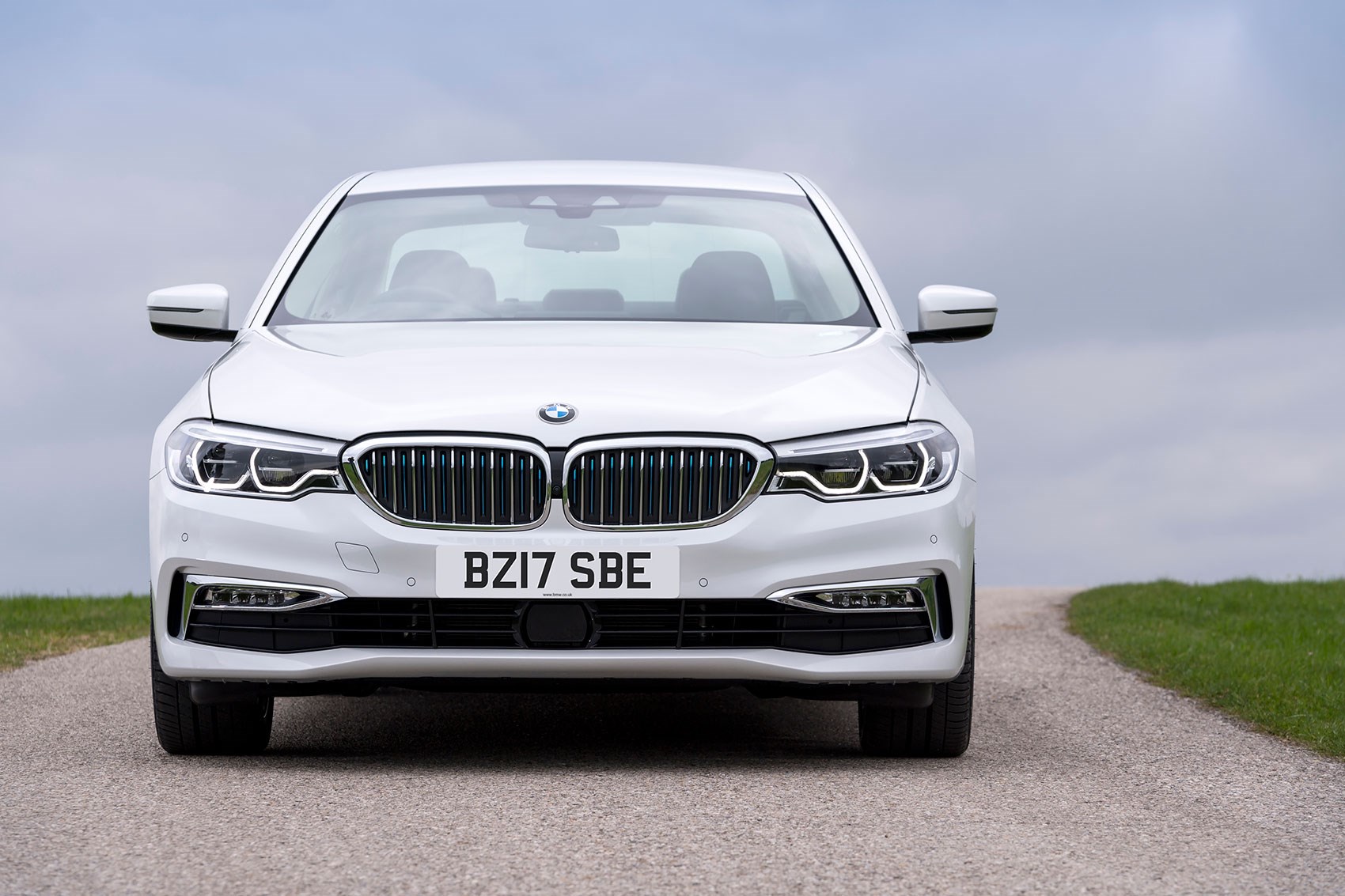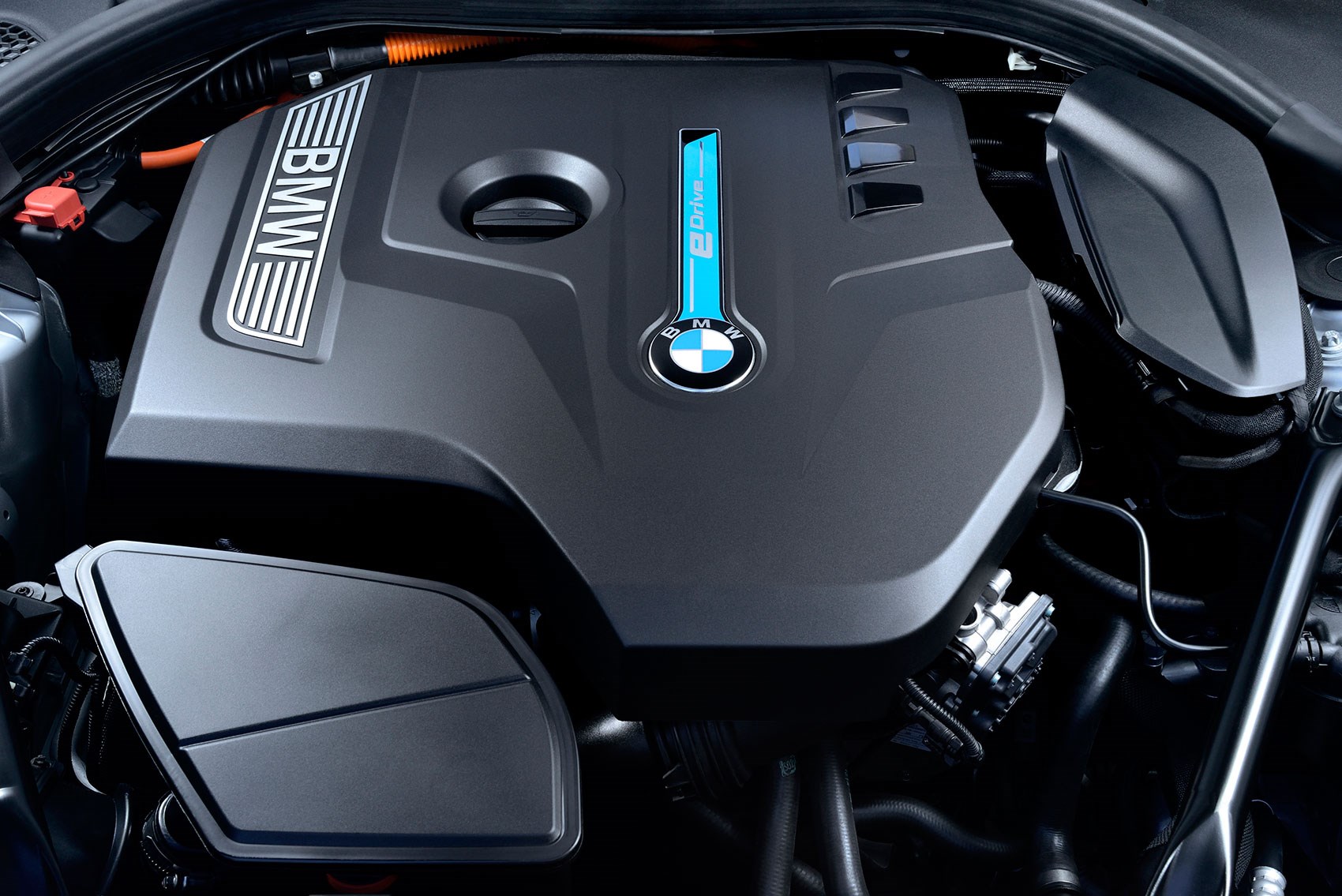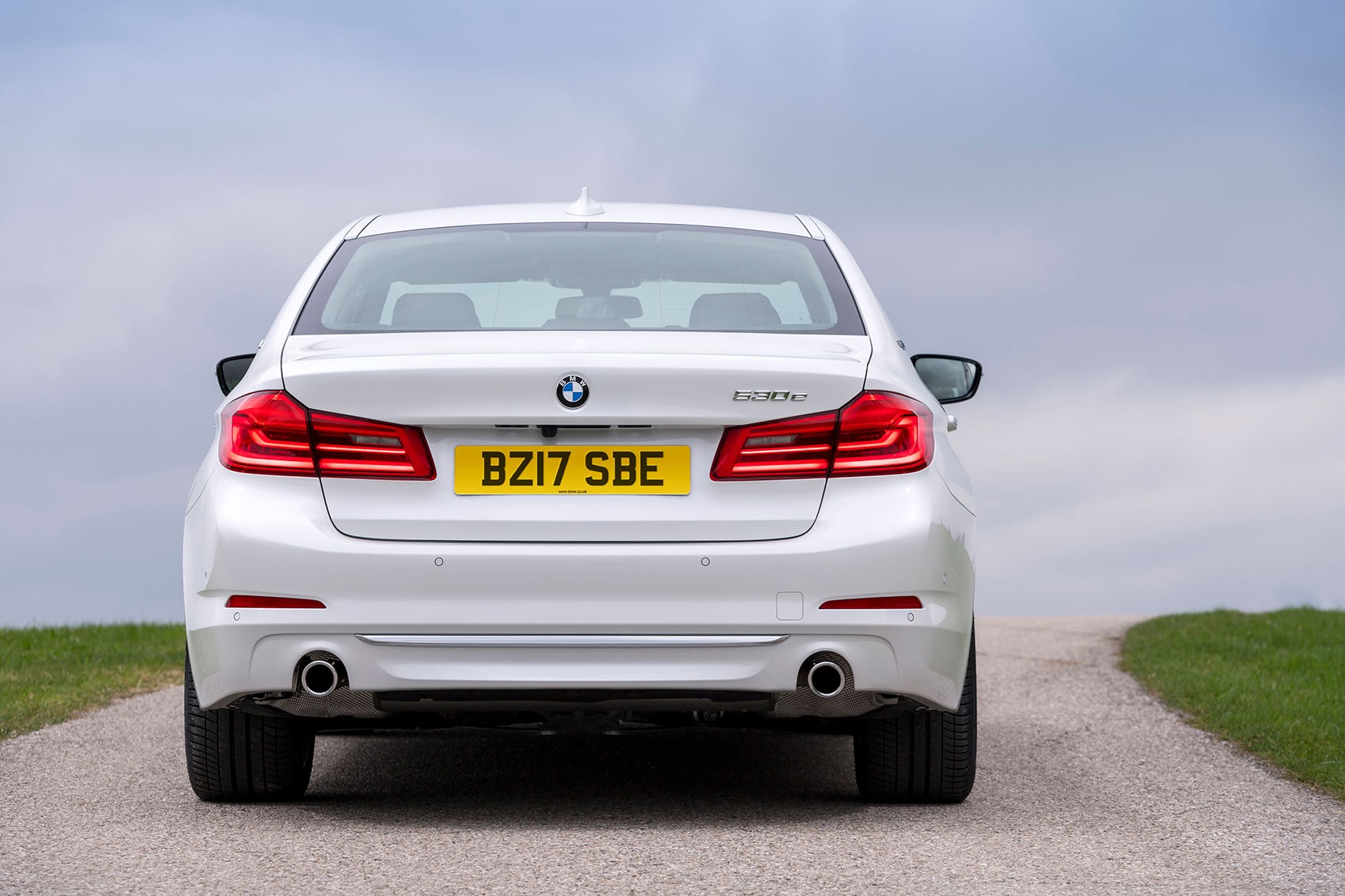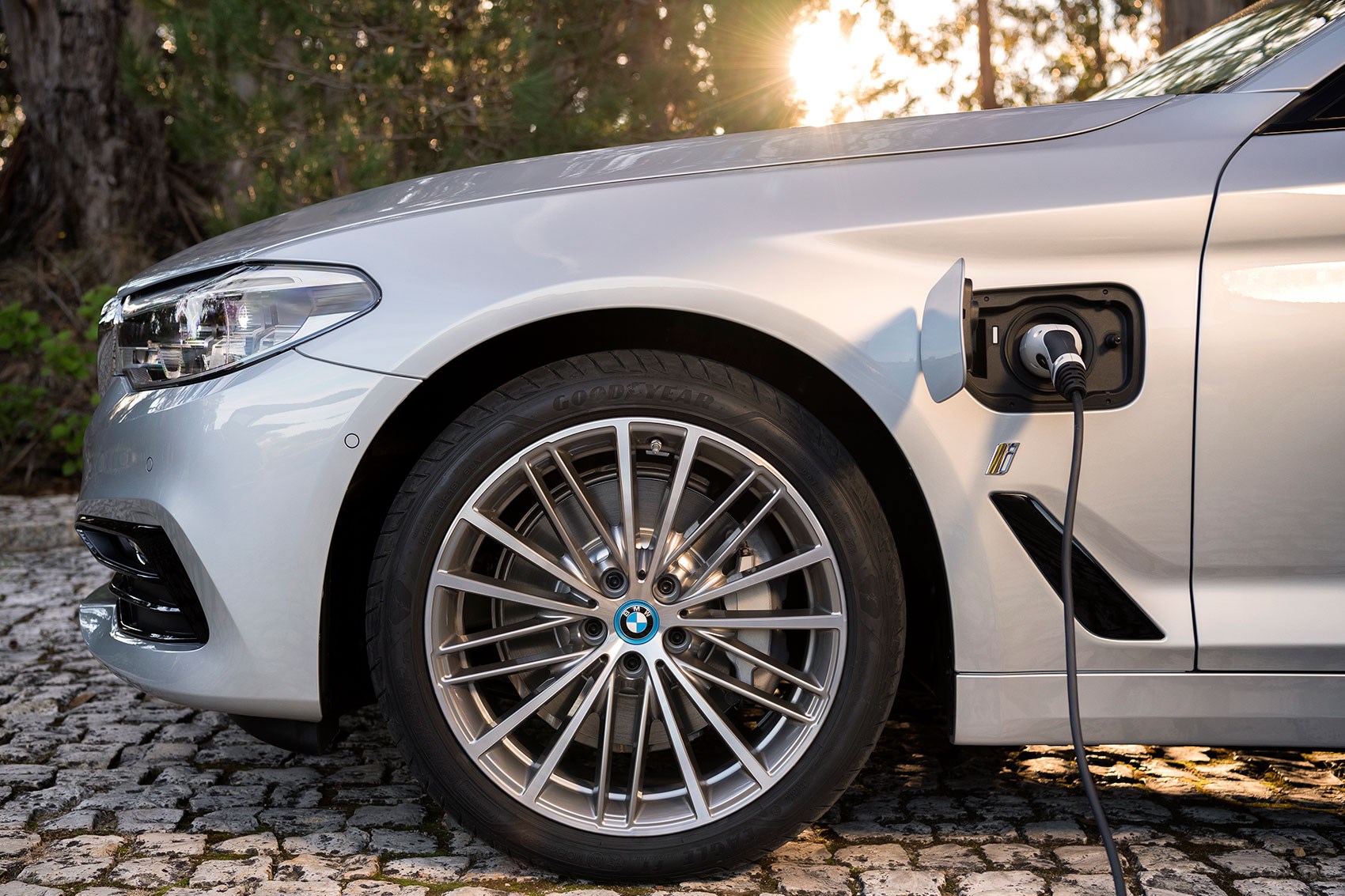► Full UK BMW 530e review
► We test 530e iPerformance 4dr
► Prices, specs, verdict and more
Having your company-car cake and eating it these days invariably means you’ll need a petrol pump and a plug socket – and so logically we arrive at the first plug-in BMW 5-series.
Copying the format from the wildly popular 330e, the BMW 530e iPerformance saloon combines a conventional petrol engine and an electric motor to deliver both power and ultra-low benefit-in-kind bills.
What’s more, BMW promises enough all-electric range for a relatively long commute, so if there’s a plug at both ends, you’ll only need to visit a filling station during every other Olympic Games. In theory…
Our guide to electric BMW cars
A hybrid BMW 5-series? Oh snore…
Where have you been? The days of the whingey-CVT eco-sackcloth are gone – a good plug-in hybrid electric vehicle (PHEV) is now almost indistinguishable in use from a conventional drivetrain.
Check out our Best Hybrids and Plug-In Electric cars list
Only three extra eDrive modes separate the driving process from a common or garden 5-series, allowing you to select an automatic hybrid mode, a performance set-up and a function to charge the battery on the move.

The 9.2kWh lithium-ion battery allows up to 29 miles of electric-only driving, and a real-world combined range of about 400 miles. Together the 182bhp 2.0-litre petrol engine and a 95bhp electric motor produce 249bhp (no, we don’t understand the maths either) plus a system total of 310lb ft of torque.
The astute among you will note that those figures are broadly similar to the 530d’s outputs – admittedly there isn’t quite as much torque, but you do get it 650rpm earlier. As such the 0-62mph times are more or less comparable, with the plug-in taking 6.2 seconds in the benchmark sprint.
Oh, and they also cost about the same…
So which is better? BMW 530e or 530d?
Well, the cliché about plug-ins performing better on paper than in the real world still holds some truth.
Browse BMW 5-series for sale

The 530e is a fast and economical car, but only for as long as the battery lasts. Sooner or later, on a long run or when you can’t find a plug, the juice will run out and the performance and fuel economy will tumble.
As a private buyer, the 530e will perform better than the 530d, providing you think ahead about charging and manage the battery on the move. The 530d, on the other hand, is pretty quick and frugal without any extra consideration, so whether or not you can be bothered with the plug-in’s extra requirements will come down to personal preference and circumstance.
If it’s a company car though, your benefit-in-kind saving is based on the 530e’s tested 46g/km of CO2, which bears no relation in the real world to how often you charge it. Tax bills should be commendably low.
I promise to charge it daily… how long does it take to top up a 530e’s batteries?
Expect a top-up time of 2 hours 45 minutes from a wallbox, or 4 hours 30 minutes from a domestic three-pin socket – that’s quick enough to allow an overnight charge at home and a daytime top-up at the office.

Something we’re quite excited about is the option to charge wirelessly, which should be available from 2018, allowing you to simply position your car over a special recharging mat to replenish the battery – no need to faff around with cables. Like the inductive charger for your smartphone though, it’ll take a little longer to fill the car up.
The batteries are situated under the rear seats, where the petrol tank usually goes, so that’s been moved backwards. As a result the BMW 530e’s boot now measures 410 litres, 120 litres smaller than before. It’ll also be half-filled with cables most of the time – worth considering.
Check out lease rates for the BMW 530e
Will my neighbours know I’ve got a BMW hybrid?
Styling changes are quite subtle but the trained eye will note the blue grille slats and wheel hub covers, the extra charging socket, and the eDrive/530e badging.
Inside there are illuminated eDrive sill panels, plus the aforementioned eDrive button and specially designed instrument cluster.

Probably the biggest give away for the Joneses will be the power cable snaking out from your garage, of course…
Verdict
Plug-in hybrids haven’t quite reached the point of mass appeal yet, but this latest generation (BMW 530e included) looks like a genuinely practical alternative to diesel power.
Sure there are still criteria to meet before a PHEV makes complete sense over a 530d – but that’s getting less restrictive with every evolution.
Providing you don’t live too far from work and are able to keep the thing charged, the 530e makes a great case for itself as a surprisingly cheap-to-own company car.
More BMW reviews by CAR magazine